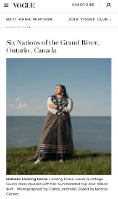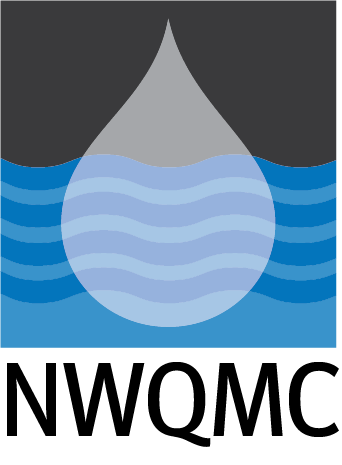| Opening Plenary Session Tuesday, March 11 |
Warrior Environmental Science: Haudenosaunee methodologies and traditional ecological knowledge
Dr. Dawn Martin Hill, Mohawk.
Ecological issues are increasingly concerning given the significant impacts of climate change. Indigenous communities are uniquely positioned to help resolve some of the climate change induced ecological problems because of their access to Indigenous Knowledge (IK). IK offers place based historical knowledge that can inform and guide climate adaptation and resilience-building; especially considering environmental challangs and water insecurity. IK-TEK is disseminated through song, dance, ceremony, law and stories often in our languages and must be translated and understood as equitably Indigenous science, observations of millennia encoded in our stories and relived through dance and song. The Ohneganos Ohnegahdę:gyo research project, led by Six Nations of the Grand River, is focused on the co-creation of a suite of learning tools, that foster IK-led research methodologies and outcomes. Indigenous ecological knowledge and western science are then weaved together to co-create knowledge, mixed media methods that are co-created reflected in our dissemination such as V.R., Digital Stories along side scientific publications. I’ll demonstrate our V.R and how important it is to have science dissemination to the public if meaning change is to occur. Our ability to engage across disciplines and worldviews while working to work to repair fractured ecological relationships due to what we call the of the colonialcene. Co-creation requires rebuilding our community and our human relationships, inclusive of centering ecological relationships that have been nearly destroyed by colonial erasure. Yothá:te is a “path” that implies a warrior’s intentions to be helpful – this is considered kayaní:yo (“a good path”) as it protects what our ancestors valued. Warrior Science refers to making a clear yothá:te through cultural resurgence, including the revitalization of spiritual connections to sustain our ancient laws and relationships, to sustain ourselves. Warrior science is decolonization and democratizations of knowledge which will be essential to address the global climate crisis and the significant impacts of the colonialcene.
Dawn Martin Hill
Emeritus Indigenous Studies Department, McMaster University

Dawn is Mohawk and resides at Six Nations of the Grand River with her family. She was the first Indigenous cultural anthropologist in Canada and continues to break barriers in education and research. She founded the Indigenous Studies Program at McMaster University as a Master’s graduate student. She was also the first Indigenous recipient of a Canada U.S Fulbright Award, supporting her work with Elders from across Turtle Island 1994. Her seminal graduate work influenced the development of Indigenous knowledge research in academia. She served as the inaugural Chair of CIHR-IIPH Secretariate of the 9 Arhnets Centers across Canada and led the development of Indigenous ways of knowing reviewing and research for CIHR-IIPH thus elevating community led research. She is also a longtime advocate of Indigenous knowledge within her university, developing curriculum in IK ethics, methodology and research. She advocated through Naylor’s Science Review securing federal Tri-Council funding access for Indigenous Knowledge. In her advocacy of IK development agreed to serve on CIHR Indigenous Peer Review Committee, advocating the Science Council’s development and inclusion of IK metrics of excellence for peer reviewing IK and Indigenous scholars’ CRC applications and Indigenous knowledge and ways of knowing research calls. With the CIHR Indigenous Peer Review committee transformational work, once implemented previous CIHR .06% Indigenous success grew to 64% success rate, (CIHR-IIPH Website, 2017).
Her primary focus over three decades is working with environment, community, women, and youth to develop Indigenous ways of knowing capacity-that can be applied in resolving real world issues such as access to clean water. She developed Indigenous pedagogy and methodologies championing community led co-creation research, over 8 interdisciplinary teams’ co-producing holistic assessments of community wellness water access, environmental justice and addressing improving ecosystem health and impacts on quality of life. Recently her work has had global policy influence, Ohneganos research report has been officially entered into the Parliament Record for FN Water Bill C-61 and United Nations Framework Convention on Climate Change drew from Kayaní:yo (a good path)—Warrior Science Ohneganos—Indigenous ecological knowledge in its 2024 strategy paper Technical guidance and training materials to support the implementation of the UAE Framework for Global Climate Resilience to support its call for more incorporation of Indigenous knowledge and improved health services in Indigenous communities.
Her current research is applied in and by community ecological knowledge through working with students and community creating bilingual tools (apps, virtual reality, water sensors, Indigenous mapping, climate change modelling, digital learning platforms, film, art) to increase capacity in water monitoring and management. She holds numerous research grants, (NSF and SSHRC) Global Climate Change Center, Indigenous lead, Climate Adaptation and Resilience Strategies (CLARS), GWF Co-Creation of Indigenous Water Quality Tools (Canada First Research Excellence Fund) and Traditional Ecological Knowledge, Training & Co-Creation of Mixed Method Tools, (Canada First Research Excellence Fund) funded over 120 undergraduate and graduate students and secured McMaster certificates of completion for 60 secondary students developing the bi-lingual tools from SN.
Dawn has mentored hundreds of students from McMaster across multiple disciplines, from SNP and her community, often unrecognized in the formal capacity of supervisor. She will continue supporting hergraduate students and post-doc fellows as her research transitions to community. She retired November of 2024 but agreed to remain active as IEC Academic Chair through 2024/5 to honor her commitment to the transition of IEC, the TEK committee, the stem Pathways planning committee, academic sub-committee and the VP-I hiring committee.
Makasa Looking Horse

Makasa Looking Horse is 26 years of age, born on Six Nations territory, her nations are Mohawk, wolf clan, and Lakota from Cheyenne River Reservation. Makasa’s name translates to ‘Red Earth’ in her Lakota language. She has been youth lead of Ohneganos research project since 2018 and organized many community awareness campaigns including a run to Nestle’s plant to stop groundwater extraction, organized Climate Change Awareness Events for local Schools and has worked with the Haudenosaunee Confederacy Council’s to secure a Cease-and-Desist Order to Water companies. She is pursuing further legal actions against companies with allies. Makasa attended Kawenni:io Mohawk Immersion Elementary School. She has been in Six Nations Traditional Medicine Practitioners course and is completed her degree in Indigenous Studies at McMaster University. Makasa is the Indigenous Restoration Coordinator for Nature at McMaster leading many Indigenous restoration initiatives at McMaster University. She co-created and hosted a live streamed podcast series called Ohneganos: Let’s Talk Water, during the Covid lockdown. The show won the David Suzuki People’s Choice Award. Makasa recently was awarded 2023 Community Scholar Eihwaędei/Yerihwayente:r by her Community SNP for her dedication to culture, and community work. Her work has been featured in Vogue magazine, Chatelaine Magazine, Vise News, and many other media outlets. She has been on a Women and Water panel for Mni Ki Wakan Indigenous Peoples Decade of Water August 2019 in Rapid City, SD, keynote for American Indian Science Academy, SUNY Buffalo N.Y. and presented at The National Conservation international conference June 2023. Looking Horse was also nominated by the United Nations Global Indigenous Youth Caucus to do the opening words and blessing at the United Nations Youth Climate Summit Sept. 2019 and presented at the United Nations Side-table at the Indigenous Peoples Permanent Forum May. 2019/2022 and last May at the UN Water Summit 2023. Shehas created short films published on www.oheganos.ca website and has co-authored several scholarly articles, worked on the V.R. and film, ecological grief for Haudenosaunee youth. She is currently the TEK Coordinator for Global Climate Change Center with Six Nations Polytechnic.
| Plenary / Awards Luncheon Thursday, March 13 |
Great Lakes Basin Monitoring Success Stories
Speakers
Briana Kupsky, Wisconsin DNR
J. Val Klump, University of Wisconsin Milwaukee, retired
Erin Houghton, NEW Water
Moderator
Madeline Magee, Wisconsin DNR
